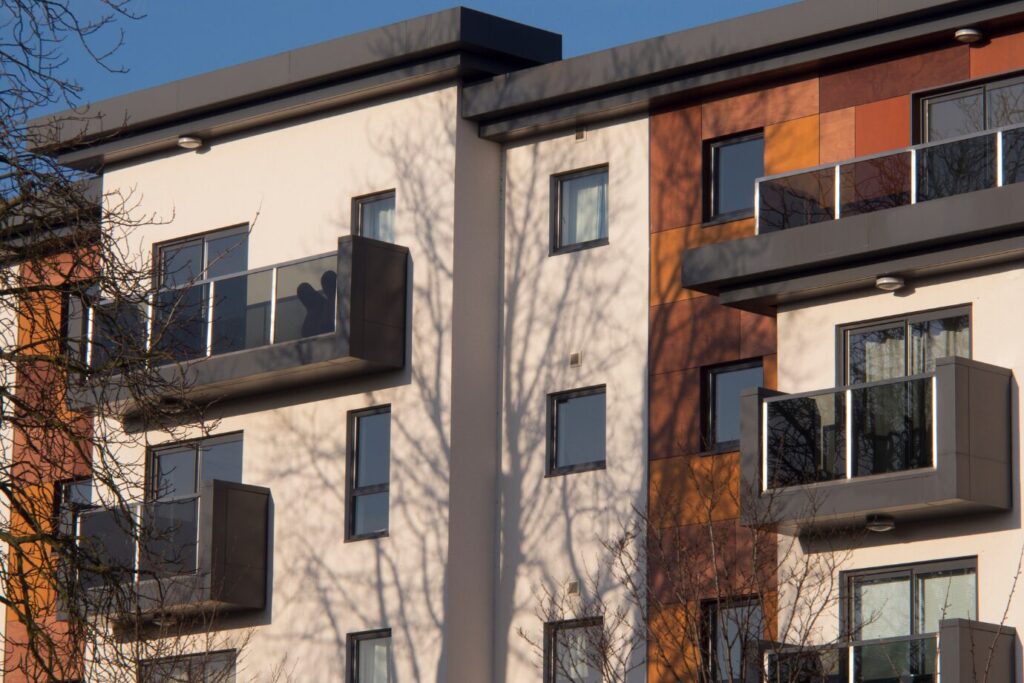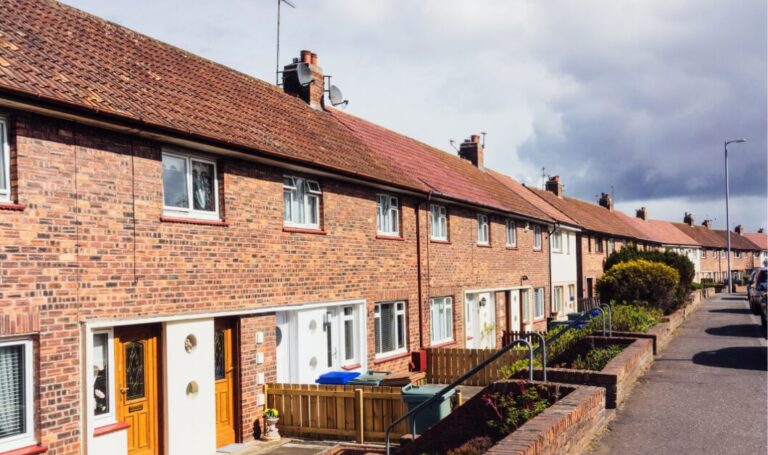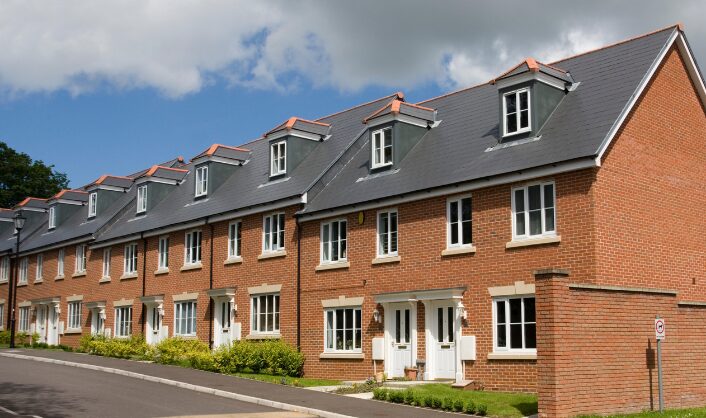When looking to buy a property to invest in, flats are a great option for many people. Single people, couples, retirees, and also families enjoy living in them, as some flats come with several bedrooms and bathrooms.
Property ownership can become more accessible for people when looking at flats because they tend to be more affordable to buy than houses. This is especially true if you only need one or two bedrooms. Flats also tend to have lower maintenance costs because they’re smaller and they often don’t have some of the additional features that many houses have, such as a garden.
If you plan to rent out the flat you buy, you can charge a good price for it, especially when it’s in a highly sought-after, city centre location. Buying a home near good transport links and amenities will help you maintain your return on investment too.
There’s a wide variety of flats available across large city centres, such as London and Manchester, so start searching for flats for sale now.
Flats for sale in London and other cities
London is an exciting place to live, and everything you could ever want is available within a short distance. Whether you love the theatre, shopping, great food and drink, exciting nightlife or beautiful parks, you’ll find it in London. This means that it’s a highly sought-after location, property-wise. Buying a flat in the heart of London is often a great investment, as the market there is always strong; demand keeps rising and this keeps bringing up property prices.
When you start to search for flats to buy, you’ll find that there are many options available, depending on your budget and your lifestyle. For example, you can find plenty of studio flats and one-bedroom flats in the exciting centre of London, and they’re generally close to transport links. However, if you’re looking for a large family flat with more bedrooms, there’ll be more of these in the suburban areas that surround London and other large cities in the UK.
London flat prices will always be higher than elsewhere in the country, but whilst you have to invest more, your property should maintain this value or even increase it. London isn’t the only option though; there are more properties available to view in other vibrant city centres, such as Manchester, Birmingham and Leeds.
It’s always worth researching any future developments in the city centre area you’re buying in. This is because any upcoming large developments of new homes could make it harder to sell your property in the future. If you want to find out more about this, then talk to your local experienced estate agent now.
Types of flats for sale
There are many different types of flats for saleStudio flats usually have a single room with a separate bathroom, but not a separate bedroom. This kind of home has the kitchen, lounge and bedroom all within one space, sometimes using furniture or partial walls to break up the area. There are plenty of studio flats available that are perfect for people without children who want to be close to work, as well as close to all the action and nightlife.
Some period houses are converted into flats, giving you options that are full of character, and retain original features, and some of these provide outside space too.
Other options include purpose-built properties, which are blocks of flats that were always designed to be flats. These include new homes and they tend to be more modern, make great use of space, and have well-designed communal areas. Some also offer on-site amenities, such as a gym.
As well as different types of flats, there’s a large range of layouts and you can search by the number of bedrooms you need. You can search for studio flats specifically, or there are plenty of one or two-bedroomed properties available. Some flats can have as many as five bedrooms or more, though there are fewer of these on the market and their price will be higher.
Freehold flats for sale: a smart investment
When you look at freehold flats for sale, it means that you would buy both the property itself and the land that it’s built on. This is an advantage because it means that you can change the outside of your building without asking for anyone’s permission. It also means that you don’t have other monthly costs, such as ground rent or service charges, and if you choose to self-manage the property you won’t have management fees either. You will be responsible for all the repairs and maintenance needed, but you can negotiate your contracts for this so that you get the best deals.
Freehold flats tend to be more expensive than leasehold properties because you’re getting the land too, but your monthly outgoings should be lower. Also, it’s a great investment in strong markets like London, because you know that the property and the land will hold their value, if not increase it. This offers you security with your investment, and it gives you the freedom to maintain the property in your way.
When it comes to selling properties, freehold flats can give you better value and make it easier for you to sell, as many buyers prefer freehold flats to leasehold. Also, if you want to sell a leasehold flat (and keep the freehold) you can extend the lease on your property to 999 years at no extra cost. This will make your flat much more attractive to buyers, and it might mean that you can get a higher price for it. If you’d like advice on selling your property, then talk to our team now.
Things to consider when looking to buy leasehold flats
- How much is the ground rent?
- Is there a service charge?
- Which repairs does the service charge cover?
- Is the property managed by a company or an individual landlord?
- How much time is left on the lease?
FAQs on flats for sale
Is it cheaper to buy a flat or rent?
Buying a flat rather than renting one will always mean that you have more upfront costs. However, in the long term, renting is generally more expensive overall.
Any decision you make will depend on your circumstances and what you can afford to do. For example, if you rent a flat, you don’t have to save up as big a deposit for it, and you don’t have to pay Stamp Duty. These are two of the significant up-front costs of buying a flat.
Owning your flat can offer you long-term stability. You’re in control of negotiating your mortgage payments with your lender, and you decide how long you want to live in the flat, rather than your landlord. You can decorate each bedroom, and change your flat to your own tastes. Also, as you pay off your mortgage you’re building up equity in your home, whereas if you pay rent to a landlord, you don’t see any of that money again.
At first, buying a flat in a city centre location will be more expensive than renting it. However, you should be able to build up equity over time, and if property prices go up, you’ll benefit from this too.
Is it cheaper to live in a flat?
Flats can provide relatively affordable living solutions, especially in city centre locations like London where prices are always inflated compared to the rest of the country.
Flats tend to cost less to buy than houses, due to the lower amount of floor space and outside areas. They also tend to be much cheaper to maintain and to heat too. These ongoing costs have been going up significantly over the last few years, so owning a flat is a good way to minimise these escalating costs. Many flats are newer than houses, so they tend to be better insulated (which helps to keep utility costs lower) and need fewer repairs.
A flat is also a cheaper option if you don’t need more than one bedroom. When you buy a house, they often have two bedrooms or more, as well as more floorspace generally, making them more costly to buy.
City centre locations have a wide range of flats available, including studio flats, one-bedroom, two-bedroom, and three-bedroom flats. There are fewer four and five-bedroom flats on the market, and the price can increase for this size of home, but they are available.
Is it good to buy a freehold flat?
There are many advantages to looking at freehold flats for sale compared to leasehold properties. First, mortgage lenders tend to prefer freehold flats, and they’re also more attractive to buyers. Having a freehold flat means that you have more control over things, including repairs and maintenance. It also means that you can make changes to the property without permission.
Leasehold flats go down in value as the years left on the lease decrease. However, if you’re the freehold owner, you can extend leases to 999 years, therefore enhancing the market value of your property and making it more attractive to buyers.
Are freehold flats more expensive than leasehold?
Freehold flats do tend to be more expensive than leasehold because you’re buying the property and the land that it’s on. However, by owning the freehold, you have much more control over your property, and how it’s maintained. You can negotiate your upkeep costs and repairs, and secure the best contracts so you’re not paying more than you need to.
Costs between freehold and leasehold flats vary widely because of several factors, but partly due to the amount of time left on the lease of the flat. As a freehold flat owner, you can increase the lease to 999 years whenever you like, but as a leasehold owner, you’d have no control over this before selling your flat.
If you’re interested in some of the flats for sale in your area, then contact your local agent now. You can book a viewing or simply ask questions and receive some expert advice. We can’t wait to hear from you.




